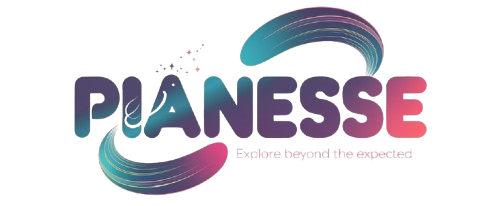10 Internet Hacks for a More Efficient Online Experience

In the digital age, the web browser serves as a gateway to a vast universe of information, services, and entertainment. However, the sheer volume of content available can often lead to a cluttered and overwhelming experience. Streamlining your browsing experience involves not only optimizing the browser settings but also employing tools and techniques that enhance efficiency.
One effective method is to utilize browser extensions that cater to specific needs. For instance, ad blockers can significantly reduce distractions by eliminating intrusive advertisements, while reading mode features allow users to focus on content without the clutter of sidebars and pop-ups.
Many users find themselves with dozens of open tabs, which can slow down performance and make it difficult to locate important information. Utilizing tab management extensions can help organize tabs into groups or save them for later use. Additionally, features like tab pinning allow users to keep frequently accessed sites readily available without cluttering the tab bar.
By adopting these practices, users can create a more focused and efficient browsing environment that enhances their overall online experience.
Key Takeaways
- Use browser extensions to streamline your browsing experience and block distracting ads and pop-ups
- Learn and utilize keyboard shortcuts to maximize productivity and efficiency in your digital tasks
- Organize your digital workspace by creating folders, using labels, and decluttering your desktop
- Protect your online security by using strong, unique passwords and enabling two-factor authentication
- Automate repetitive tasks using tools like IFTTT or Zapier to save time and effort
- Improve your search skills by using advanced search operators and filters to find information quickly
- Enhance your online communication by using collaboration tools like Slack and Zoom for seamless communication
- Optimize your multimedia experience by using ad blockers and streaming services for uninterrupted entertainment
Maximizing Productivity with Keyboard Shortcuts
Keyboard shortcuts are an often-overlooked tool that can dramatically enhance productivity while navigating digital environments. By learning and utilizing these shortcuts, users can perform tasks more quickly and efficiently than relying solely on mouse clicks.
Streamlining Web Browsing
For example, in most web browsers, pressing “Ctrl + T” opens a new tab, while “Ctrl + W” closes the current tab. These simple combinations can save valuable time, especially for those who frequently switch between multiple tabs or applications.
Expanding Beyond Web Browsers
Moreover, keyboard shortcuts extend beyond just web browsers; they are integral to various software applications, including word processors, spreadsheets, and graphic design tools. For instance, in Microsoft Word, “Ctrl + B” bolds selected text, while “Ctrl + Z” undoes the last action.
Boosting Efficiency and Reducing Cognitive Load
Familiarizing oneself with these shortcuts not only speeds up workflow but also reduces the cognitive load associated with navigating menus and options. As users become more adept at using keyboard shortcuts, they often find themselves completing tasks in a fraction of the time it would take using traditional methods.
Organizing Your Digital Workspace

A well-organized digital workspace is crucial for maintaining focus and efficiency in an increasingly digital world. Just as a cluttered physical desk can hinder productivity, a disorganized digital environment can lead to frustration and wasted time. One effective strategy for organizing your digital workspace is to implement a systematic file management system.
This involves creating a hierarchy of folders that categorizes documents by project, date, or type. For example, a marketing professional might have separate folders for client projects, research materials, and completed campaigns, making it easier to locate files when needed. In addition to file organization, utilizing cloud storage solutions can further enhance workspace organization.
Services like Google Drive or Dropbox allow users to access their files from any device with internet connectivity while providing collaborative features that facilitate teamwork. By storing files in the cloud, users can also reduce the risk of data loss due to hardware failures. Furthermore, integrating productivity tools such as task managers or note-taking applications can help keep track of ongoing projects and deadlines, ensuring that nothing falls through the cracks.
Protecting Your Online Security
| Security Measure | Importance |
|---|---|
| Strong Passwords | High |
| Two-Factor Authentication | High |
| Regular Software Updates | Medium |
| Use of VPN | Medium |
| Secure Browsing | High |
In an era where cyber threats are increasingly sophisticated, protecting your online security has never been more critical. One of the foundational steps in safeguarding personal information is to use strong, unique passwords for each online account. Password managers can assist in generating and storing complex passwords securely, reducing the likelihood of falling victim to phishing attacks or data breaches.
Additionally, enabling two-factor authentication (2FA) adds an extra layer of security by requiring a second form of verification before granting access to accounts. Another vital aspect of online security is being vigilant about the information shared on social media platforms and other websites. Oversharing personal details can make individuals more susceptible to identity theft or targeted scams.
Regularly reviewing privacy settings on social media accounts ensures that only trusted contacts have access to personal information. Furthermore, being cautious about clicking on links in emails or messages from unknown sources can prevent malware infections and other cyber threats. By adopting these practices, users can significantly enhance their online security posture.
Automating Repetitive Tasks
Automation has emerged as a powerful tool for increasing efficiency in both personal and professional settings. Many tasks that are repetitive in nature can be automated using various software solutions or built-in features within applications. For instance, email clients often provide options for creating rules that automatically sort incoming messages into designated folders based on specific criteria such as sender or subject line.
This not only declutters the inbox but also ensures that important communications are prioritized. In addition to email management, automation tools like IFTTT (If This Then That) or Zapier allow users to create workflows that connect different applications and automate tasks across platforms. For example, one could set up a workflow that automatically saves email attachments from Gmail to Google Drive or posts new blog entries directly to social media accounts.
By leveraging automation tools effectively, individuals can free up time spent on mundane tasks and focus on more strategic activities that require human creativity and insight.
Improving Your Search Skills

Mastering Advanced Search Operators
One technique is to use advanced search operators in search engines like Google. For instance, enclosing phrases in quotation marks yields exact matches, while using a minus sign before a term excludes unwanted results. These strategies enable users to navigate vast amounts of information with precision.
Understanding Search Engine Indexing
Additionally, understanding how different search engines index content can enhance search skills further. For example, academic databases like Google Scholar or JSTOR provide access to scholarly articles and research papers that may not appear in standard search results.
Specialized Search Engines for Specific Fields
Familiarizing oneself with specialized search engines tailored to specific fields—such as PubMed for medical research—can yield high-quality information that is often overlooked in general searches. By honing search skills through these methods, individuals can become more adept at finding the information they need quickly and efficiently.
Enhancing Your Online Communication
Effective online communication is essential in both personal and professional contexts, especially as remote work becomes increasingly prevalent. One key aspect of enhancing online communication is mastering the use of various communication platforms—be it email, instant messaging apps, or video conferencing tools. Each platform has its nuances; for instance, emails should be concise yet informative, while instant messages may require a more casual tone but should still convey clarity.
Moreover, understanding the importance of non-verbal cues in virtual communication cannot be overstated. In video calls, maintaining eye contact by looking at the camera rather than the screen can foster a sense of connection with participants. Additionally, using visual aids such as slides or screen sharing during presentations can enhance understanding and engagement among audience members.
By being mindful of these elements and adapting communication styles accordingly, individuals can improve their interactions in digital spaces significantly.
Optimizing Your Multimedia Experience
As multimedia content becomes increasingly prevalent online—from streaming services to podcasts—optimizing this experience is essential for enjoyment and efficiency. One way to enhance multimedia consumption is by utilizing high-quality audio and video equipment. Investing in good headphones or speakers can significantly improve sound quality during music streaming or video calls, while a high-resolution monitor enhances visual clarity when watching films or editing photos.
Closing unnecessary applications that consume bandwidth or scheduling downloads during off-peak hours can lead to smoother experiences. Additionally, exploring features such as closed captions or subtitles can make multimedia content more accessible and enjoyable for diverse audiences.
By focusing on these aspects of multimedia consumption, users can create an immersive experience that enriches their engagement with digital content.
FAQs
What are internet hoaxes?
Internet hoaxes are false or misleading information spread online with the intent to deceive or trick people. They can take the form of fake news articles, photoshopped images, or fabricated stories.
How can you identify internet hoaxes?
You can identify internet hoaxes by fact-checking the information with reliable sources, looking for inconsistencies in the story, and being skeptical of sensational or shocking claims.
Why do people create internet hoaxes?
People create internet hoaxes for various reasons, including seeking attention, spreading propaganda, or causing harm. Some hoaxes are created for entertainment or to test the gullibility of others.
What are the potential dangers of internet hoaxes?
Internet hoaxes can spread misinformation, create panic or fear, damage reputations, and even lead to real-world consequences. They can also erode trust in online information and media.
How can we combat internet hoaxes?
To combat internet hoaxes, it’s important to verify information before sharing it, report hoaxes to the platform they are shared on, and educate others about the dangers of spreading false information. Critical thinking and media literacy skills are also important in combating internet hoaxes.







